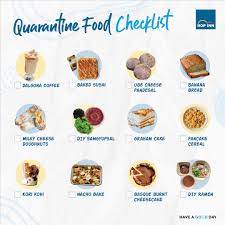
Healthy diets are a vital part of a healthy lifestyle. They promote overall health and provide essential nutrients and micronutrients. They not only maintain health but also lower the risk of developing chronic diseases. Diets that are too high in fat, sugar, and salt, on the other hand, are unhealthy. Global initiatives are becoming more focused on improving food systems and changing the choices people make to have sustainable healthy diets.
The food based dietary guidelines (also known as healthy foods guides) provide guidance to consumers about how to eat a wide range of foods. These guidelines help to prevent diseases such as diabetes, heart disease, and cancer. A healthy diet is one that provides enough food energy, fluid, fiber, protein, and vitamins. It is important not to eat unhealthy food and to eat healthy.
Programs and policies regarding nutrition are key ways in which governments can encourage healthy diets. Some programs aim to integrate healthy diets into the safety net programs via cash-transfer or counseling. Some programs promote new varieties of crops and increase consumer awareness about nutrition. This article discusses the key issues and challenges that lower-income countries face when trying to promote healthy diets.

Lower-income countries have the highest rates of underweight and under-nutrition. Inadequate access to healthy foods may lead to many of the health problems that are associated with unhealthy diets. Also, knowledge and preferences could be factors that contribute to unhealthy eating habits. Food-based dietary guidelines, which focus on nutrition, can help reduce diet-related mortality rates.
The food pyramid, which is one of the most commonly used graphic representations for healthy diets, is probably the most well-known. The pyramid is designed to help people eat healthy foods. Although the nutritional recommendations are similar for adults, they differ for children.
Globally, fruit & vegetable intake is around 60% below the recommended intake. Africa's average fruit and veggie intake is just 59.5% below the recommended intake. However, protein-rich foods such as milk and meat are still recommended.
Healthy diets should be affordable for low income communities. Policy measures are needed to increase access to affordable, nutritious food on the market. In most areas, there is an increase in the number of people who can't afford healthy food.

According to a new report by the Commission on Sustainable Food Production in 2018, 12 million deaths could have been prevented due to poor diets. This figure is not counting the more than 26% of adult deaths caused by poor diets.
Despite an increase in preventable deaths, very little has been done to improve diets over the last decade. During that time, the global average population has grown by 10 percent. However, the number and causes of preventable deaths have increased more than twice.
FAQ
How can I get enough vitamins?
Your diet can provide most of your daily requirements. Supplements can be beneficial if you are missing a specific vitamin. You can purchase a multivitamin that includes all the vitamins needed. You can also get individual vitamins at your local drugstore.
Talk to your doctor about the best foods for vitamins if you're concerned about not getting enough nutrients. You can find vitamins K and E in dark green leafy vegetable such as spinach, kale and turnip leaves, as well romaine lettuce and arugula.
Ask your doctor if there is any doubt about how much vitamin you should be taking. The doctor will determine the proper dosage based upon your medical history as well as your current health.
Do I need to count calories?
You may wonder, "What diet is best for you?" or "is counting calories necessary?" The answer to this question depends on many factors, including your current health, your personal goals and preferences, as well as your overall lifestyle.
The Best Diet for me - Which One Is Right for You?
The best diet is dependent on my current health status, personal goals, preferences, and overall lifestyle. There are many diets out there, some good and some bad. Some diets work for some people, while others are not. What should I do then? How do I make the right choice
These are the questions this article will answer. It begins with an overview of the different diets today. Next, we will discuss the pros & cons of each kind of diet. Finally, we'll look into how to choose the best one for you.
Let's begin by briefly reviewing the different types and diets.
Diet Types
There are three main types of diets: low fat, high protein, and ketogenic. Let's talk about them briefly.
Low Fat Diets
A low-fat diet restricts fat intake. This is done through reducing the intake of saturated fats (butter, cream cheese, etc.) They are replaced by unsaturated fats such as avocados, olive oil, and cream cheese. Low fat diets are often recommended to those who wish to lose weight quickly. However, constipation, stomach pain, and heartburn can all be caused by this type of diet. In addition, it may lead to vitamin deficiencies if a person doesn't get enough vitamins from their food.
High Protein Diets
High protein diets reduce carbohydrates to favor of proteins. These diets usually have higher amounts of protein than other diets. These diets are meant to help increase muscle mass and decrease calories. Unfortunately, they can't provide adequate nutrition for those who eat regularly. They can also be very restrictive so they may not be suitable for everyone.
Ketogenic Diets
Ketogenic diets are also known as keto diets. They are high-fat and low in carbs and protein. Athletes and bodybuilders use them because they allow them more time and harder training without getting tired. However, they must be used with caution to avoid nausea, headaches and fatigue.
What is the problem of BMI?
BMI stands For Body Mass Index. It is a measurement of body mass based on height and/or weight. The following formula can be used to calculate BMI.
Weight in kilograms divided by height in meters squared.
The result is expressed as a number from 0 to 25. A score of 18.5 indicates that you are overweight and a score of 23 indicates that you are obese.
A person with a body mass index of 22 and a weight of 100 kg and a height 1.75m will have a BMI.
What can you do to boost your immune system?
There are trillions of cells in the human body. These cells work together to form organs and tissues that perform specific functions. When one cell dies, another cell replaces it. Hormones, which are chemical signals that allow cells to communicate with one another, enable them to do so. Hormones control all bodily functions, including growth, development, metabolism, immunity and immune system.
Hormones are chemicals secreted by glands throughout the body. They circulate through the bloodstream and act as messengers to regulate how our bodies function. Some hormones are produced internally while others are made outside of the body.
Hormone production starts when hormone-producing cells release their contents into your bloodstream. Once hormones are released they move through the bloodstream until reaching their target organ. In some cases hormones can remain active for a very short time. Others hormones are more active and have a longer life expectancy. They can still influence the body's functions long after they have been eliminated from the bloodstream.
Some hormones are made in large quantities. Others are made in very small amounts.
Some hormones are produced at certain times during life. For instance, estrogen is produced during puberty, pregnancy, menopause, and old age. Estrogen helps women develop breasts, maintain bone density, and prevent osteoporosis. Estrogen promotes hair growth, and skin stays soft and smooth.
Here are five ways to lead a healthy lifestyle.
What are 5 ways to live a healthy lifestyle?
Living a healthy lifestyle involves eating right and exercising regularly. Avoiding sugar and unhealthy fats is key to eating well. Exercise can help you burn calories and strengthen your muscles. Sleeping enough can improve memory and concentration. Managing stress reduces anxiety and depression. Fun keeps us happy and healthy.
Is being cold bad for your immune system?
It's been said that there are two kinds of people in the world; those who love winter and those who hate it. But whether you love or hate it, you may find yourself wondering why you feel so lousy when it's cold out.
The truth is that our bodies are built to function in warm temperatures. In fact, we evolved to thrive in hot climates because that's where most of our food sources are located.
However, our environment is quite different than that of our ancestors. We spend much more time indoors, often exposed to extreme temperatures (cold and heat), and we eat foods that are processed rather than fresh.
Our bodies aren’t accustomed to extreme temperatures anymore. That means that when we do venture outdoors, we're left feeling tired, sluggish, and even sick.
There are many ways to avoid these side effects. The best way to avoid these problems is to ensure that your body stays hydrated throughout the day. You can help flush out toxins and keep your body hydrated by drinking plenty of water.
A healthy diet is another important thing. The best way to maintain your body's optimal temperature is by eating nutritious food. This is particularly helpful for anyone who spends long periods of time inside.
Take a few minutes every morning to meditate. Meditation can relax your mind and body which can make it easier to deal stress and illness.
How can I tell what is good for me?
Your body is your best friend. Your body knows what you need when it comes time to eat, exercise, and get enough rest. It's important to pay attention to your body so you don't overdo things. Listen to your body and make sure you're doing everything you can to stay healthy.
Statistics
- Extra virgin olive oil may benefit heart health, as people who consume it have a lower risk for dying from heart attacks and strokes according to some evidence (57Trusted Source (healthline.com)
- WHO recommends consuming less than 5% of total energy intake for additional health benefits. (who.int)
- The Dietary Guidelines for Americans recommend keeping added sugar intake below 10% of your daily calorie intake, while the World Health Organization recommends slashing added sugars to 5% or less of your daily calories for optimal health (59Trusted (healthline.com)
- WHO recommends reducing saturated fats to less than 10% of total energy intake; reducing trans-fats to less than 1% of total energy intake; and replacing both saturated fats and trans-fats to unsaturated fats. (who.int)
External Links
How To
How to keep motivated to eat healthy and exercise
Motivation tips for staying healthy
Motivational Tips for Staying Healthful
-
Make a list with your goals
-
Set realistic goals
-
Be consistent
-
Reward yourself when your goal is achieved
-
Don't give up if you fail at first
-
Have fun